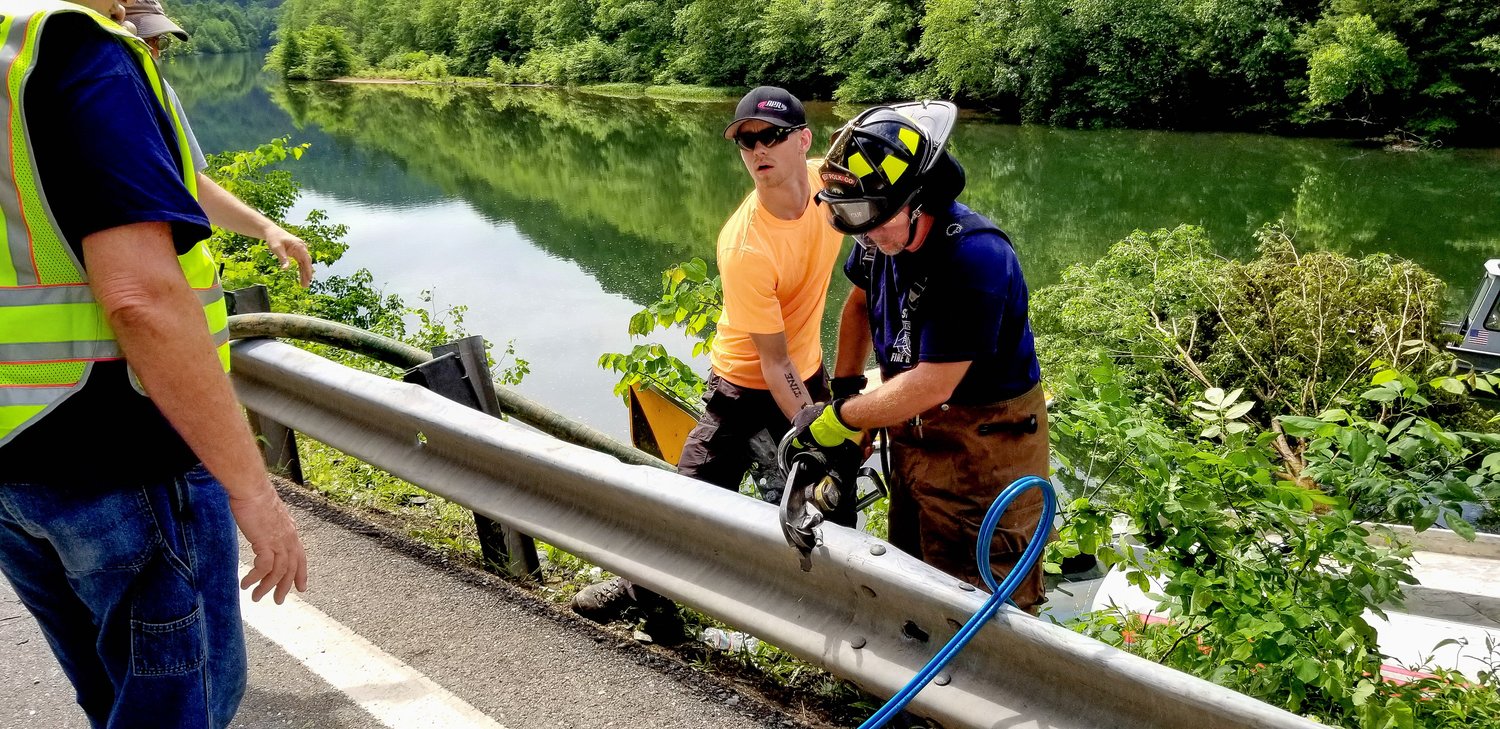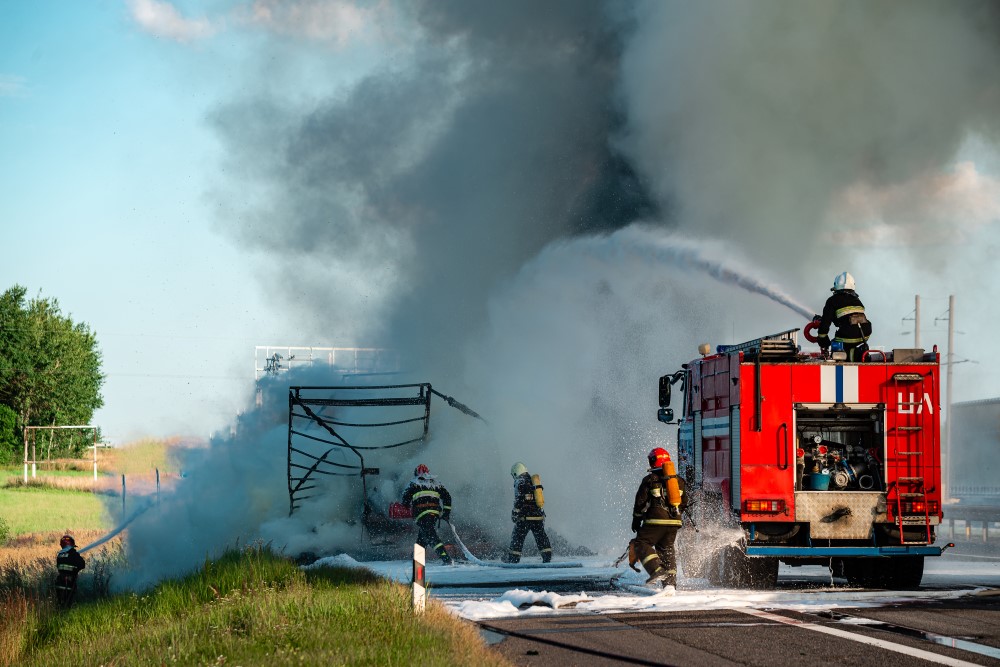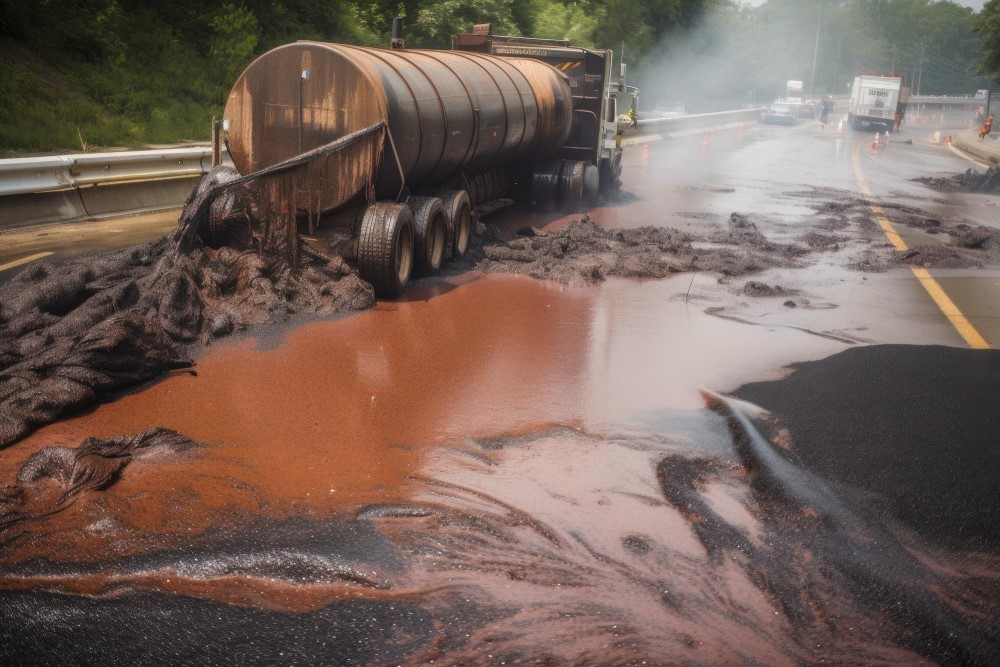
CERT hazmat response crews respond to hundreds of hazardous material spills each year. From pumping and transferring hazardous materials from damaged tankers to cleaning up hazmat spills for industrial clients. Cert is the industry leader in 24-hour spill hazmat response in the Charlotte NC area.
At CERT we feel that being ready at all times for any environmental disaster that may come up is of utmost importance. CERT has recently added our largest hazmat response unit to date for 24-hour spill response. This new response unit has equipment on board to plug and patch tankers or fuel tanks. Pumping equipment to pump and transfer hazardous and non-hazardous liquids from a damaged tank or tanker. It is equipped with all the necessary supplies to clean up hazardous and non-hazardous spills even if those spills hit a storm drain or a waterway. We feel that it is our duty to provide our clients with quick and efficient response times, and this new response unit helps us do that more effectively and efficiently by showing up on-site with all the necessary equipment and supplies that may be needed for any type of incident.

When it comes to hazardous materials, safety is paramount. Hazardous materials, often referred to as hazmat, encompass a wide range of substances that, if not handled properly, can pose significant risks to human health, the environment, and property. Hazmat situations can arise in various scenarios, including accidents involving oil or gas tank spillage on roads. In this blog, we’ll delve into what hazmat is, explore the importance of certification for roadside cleanup, and discuss the challenges posed by oil and gas tank spills.
Hazardous materials, or hazmat, are substances or materials that, due to their chemical, physical, or biological properties, have the potential to cause harm to humans, the environment, or property. These materials can take many forms, including chemicals, gases, liquids, and even solids. Common examples include flammable liquids, corrosive materials, toxic gases, and radioactive substances. Hazmat situations can arise from transportation accidents, industrial incidents, chemical spills, and more.
Hazmat situations often require a swift and coordinated response to mitigate risks and minimize damage. This is where hazmat certification becomes crucial. Hazmat certification is a formal training and qualification process that equips individuals with the knowledge and skills needed to safely manage and respond to hazardous material incidents.
Identify Hazmat Materials: They can recognize different types of hazardous materials and assess their risks.
Contain and Control Hazmat Incidents: Certified professionals are skilled in containing and controlling hazmat incidents to prevent their spread and further damage.
Protect Themselves and Others: They understand how to use personal protective equipment (PPE) to minimize exposure risks.
Implement Cleanup Procedures: Hazmat-certified responders are trained to clean up hazardous materials in a safe and environmentally responsible manner.
Comply with Regulations: They are well-versed in hazmat regulations and standards, ensuring that cleanup efforts adhere to legal requirements.

One common hazmat scenario on roads involves oil and gas tank spillage. Accidents, equipment failures, or transportation incidents can lead to the release of petroleum products onto roadways. These spills pose significant risks, including:
Proper hazmat response certification is essential for responders tasked with addressing oil and gas tank spills. They must be equipped to assess the situation, establish safety perimeters, deploy absorbent materials, and dispose of contaminated materials according to regulations.
In the world of hazardous materials and roadside cleanup, knowledge and preparedness are paramount. Hazmat response certification ensures that responders are equipped with the expertise needed to safeguard public safety, protect the environment, and mitigate the potential damage caused by hazmat incidents, including oil and gas tank spillage on roads. By investing in proper training and adhering to safety protocols, we can better navigate the challenges posed by hazardous materials and ensure a safer, cleaner future for our communities.